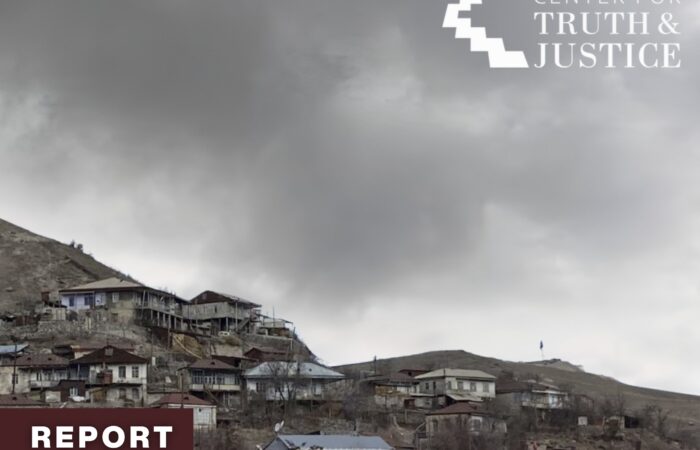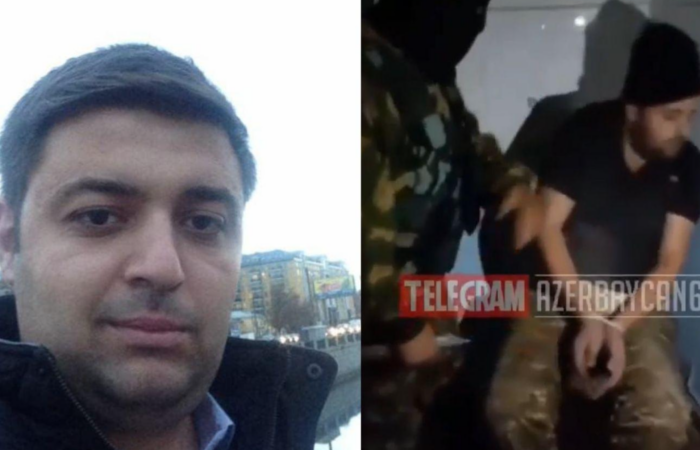Introduction
Since December 12, 2022, Azerbaijanis, referring to themselves as “eco-activists” and backed by the government of Azerbaijan, blockaded the Lachin Corridor, the only road connecting Nagorno-Karabakh to Armenia. The Lachin Corridor is Nagorno-Karabakh’s only transportation corridor that provides food, medicine and supplies to the Armenian population. Due to this ongoing blockade, the 120,000 Armenians of Nagorno-Karabakh are once again the target of Azerbaijani aggression. Azerbaijan had also cut gas to Nagorno-Karabakh, as temperatures hover around 30 degrees Celsius, with snow on the ground. The blockade has been in effect for nine (9) days. The humanitarian crisis is looming. Unless Azerbaijan immediately opens the Lachin Corridor, serious and permanent harm will occur to 120,000 Armenians who will face freezing temperatures without heat or hot water. They will not have access to an adequate food supply, medicines and medical care until the corridor is open.
The Consequences of the Blockade
- Freedom of movement and travel: 120,000 residents of Nagorno-Karabakh have been unable to freely move in and out of the region. Travel has come to a complete halt between Armenia and Nagorno-Karabakh. At the time the blockade went into effect, over 1,500 people from Nagorno-Karabakh, who were in Armenia, have become stranded and separated from their families. 120 elementary students from Nagorno-Karabakh, who were in Armenia for an educational program, are now stranded in Armenia away from their parents.
- Delivery of medicine: Medicine deliveries to Nagorno-Karabakh have stopped. Surgeries in hospitals have been halted. To date, a 44-year-old male who was in critical condition in Nagorno-Karabakh died due to lack of access to urgently needed medical care. There are fourteen (14) patients in critical condition that require transportation to Armenia. So far, only one critical patient was escorted out of Nagorno-Karabakh and through the Lachin Corridor, led by the International Committee of Red Cross (“ICRC”). There is a 4-month-old baby that also requires acute medical care and needs to be transported to Armenia.
- Delivery of food: Since the blockade was imposed, the food supply system has come to a halt. Nagorno-Karabakh relies on 400 tons of daily deliveries of food supplies from Armenia. The stores have run out of basic food necessities and food shortages are beginning to be felt throughout Nagorno-Karabakh.
- Gas supplies stopped: Azerbaijan also cut the gas supply to Nagorno-Karabakh, which flows from Armenia. The gas supply was off from December 13-16, 2022, when Azerbaijan opened the pipeline after facing intense international criticism.
- Education: The outcome of all this has led to the closure of all the schools. 30,000 kindergarten to 12th-grade students are being deprived of education. College students are unable to complete their year-end final exams, thus affecting their higher education plans and graduation.
The Center for Truth and Justice (“CFTJ”) has collected testimonial evidence from residents of Nagorno-Karabakh who have stated:
- On Day 7 of the blockade, a witness in Stepanakert gave testimony of how she visited the grocery store to look for fruit for her grandchildren but the shelves were empty. She stated that due to the 44 Day War, she was forced to leave her home village of Avetanarots, which is now under Azerbaijani control. She was forced to resettle in Stepanakert. She expressed extreme anxiety about her future and the fear of being forced out of Stepanakert. Having been displaced by Azerbaijan multiple times, she had nowhere else to go.
- On Day 7, another witness in Stepanakert stated that she had taken her grandchild to the hospital where there were severe shortages in medical supplies.
- On Day 6 of the blockade, another witness in Stepanakert spoke about a 4-month-old child in critical condition who needed immediate transportation to Armenia for treatment. However, this transportation was not possible due to the blockade, depriving the child of receiving life-saving treatment.
- On day three of the blockade, a grocery store employee stated that the store had stopped receiving fruit and vegetable deliveries three days before when the blockade began. He estimated that by the end of the day, the store would have no more produce to offer. Video footage of the interview shows the store with multiple empty boxes and only a few grapefruits, green peppers, and fruit rolls left. CFTJ also obtained videos and images from several other groceries that showed empty shelves.
- Multiple witnesses spoke about how by Day 8 of the blockade the people of Nagorno-Karabakh were facing severe food shortages.
- Many spoke about how Day 8 of the blockade was marked with the first blockade-attributed death due to a severe lack of medicine.
- By Day 8, a pharmacy employee stated that the supply of antibiotics is essential in the winter season but is running critically low; blood pressure medications are similarly in severe shortage; baby formula, diapers and some medications for children are all in a low supply; other medications are completely out of stock with the pharmacy struggling to find suitable substitutes. On a regular basis, the pharmacy is turning customers away, unable to fill their prescriptions.
With even colder temperatures expected, this will soon unravel into a humanitarian calamity.
Azerbaijan’s False Narrative
Azerbaijan has denied its involvement in the blockade but this false narrative is not supported by the facts. The international community including the U.S., UK, France and all members of the UN Security Council today called on the government of Azerbaijan to lift their blockade and open the Lachin Corridor to free flow of movement. The recorded 9228th meeting of the UN Security Council regarding Azerbaijan’s blockade of the Lachin Corridor can be found here: https://media.un.org/en/asset/k1o/k1o8d80kaj.
Grave Consequences of the Blockade
According to the witness accounts and evidence gathered by CFTJ, the residents of Nagorno-Karabakh are facing severe food shortages and inadequate medical care due to the ongoing blockade orchestrated by the government of Azerbaijan. The blockade is affecting all residents of Nagorno-Karabakh, including vulnerable populations such as children, people with disabilities, as well as the chronically sick, hospitalized and those in critical condition. These are all violations of customary international law as well as the Geneva Convention. As the crisis continues, the supply of essential goods in the region is rapidly approaching its complete depletion. CFTJ urges the international community to demand an end to the blockade, which it views as an attack on the civilian population of Nagorno-Karabakh with the aim of ethnically cleansing them from their homelands.
Center for Truth and Justice is a human rights organization that gathers testimonial evidence from victims and witnesses in conflict and war zones in an effort to amplify their voices. The evidence-gathering methodology CFTJ uses can be found here: https://www.cftjustice.org/investigations-methodology/.


